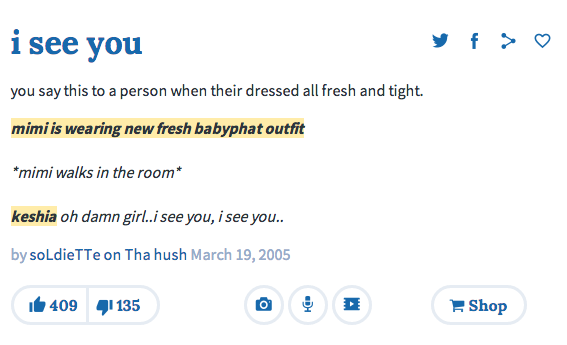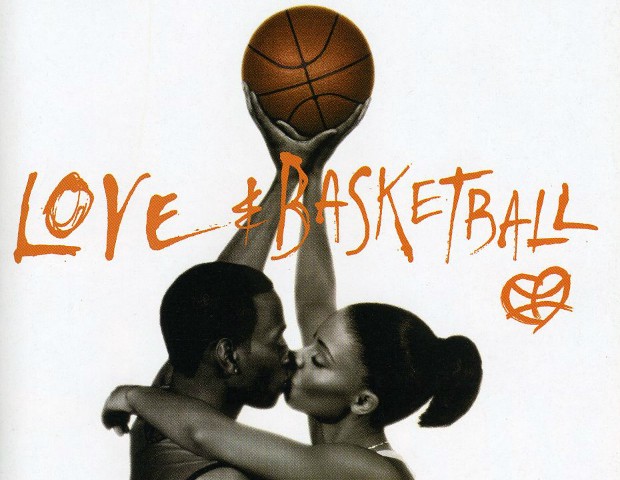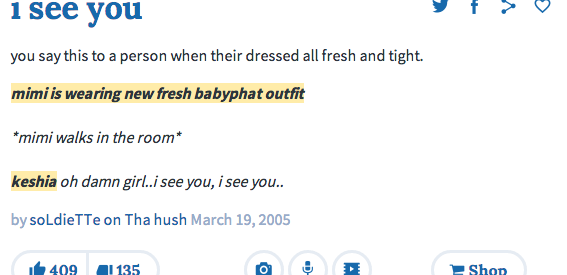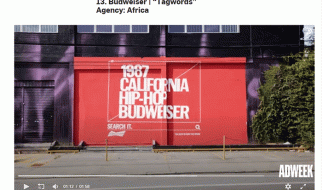With three simple words, Gina Prince-Bythewood takes a slumbering generational term and imbues it with power, accountability, and love.
?I see you? is a phrase devoid of any romance, yet when Kaz says it to Noni in Beyond the Lights, I find myself desiring a beau to whisper those three little words to me, too.
For the uninitiated, ?I see you? is a colloquial term that is used frequently by today?s younger generation. According to Urban Dictionary, it is usually used as a way of recognizing someone?s recent accomplishment; for example, congratulating a friend who has progressed in her career (?Ok, miss Vice President, I see you!?) or even acknowledging a friend who put together an outfit really well (?Love those shoes. I see you!?). While it is positive in connotation, what it is not, and has never been, is a deep expression of love and understanding ? until now.
 One of the definitions for ?I see you? on Urban Dictionary.
One of the definitions for ?I see you? on Urban Dictionary.
With three simple words, writer-director Gina Prince-Bythewood takes a slumbering generational term and flips its original context to deliver a phrase that becomes rife with power, accountability, and love. Her third feature film, Beyond the Lights is a romantic drama starring Noni, the hyper-sexualized and misguided pop star (played by the multi-faceted Gugu Mbatha-Raw), and Kaz (Nate Parker), the cop with political ambitions who babysits celebrities as a side gig. When Noni attempts suicide on Kaz?s watch, what follows is a remarkably intense scene on the hotel balcony in which Kaz, seeing a person who does not recognize her own self-worth, lets Noni know that he sees her. It is the scene that kick-starts their love story and begins Noni?s journey toward finally saving herself from drowning in the entertainment industry.
?I see you? becomes Noni and Kaz?s rallying cry. Both characters exist as figureheads for their parents? hopes and dreams, but are never asked what will make them happy; Noni?s mother (Minnie Driver) is a tireless momager who puts the business before her daughter?s well-being, and Kaz?s father (Danny Glover) pushes his own cop-to-politician trajectory onto his son.
When Kaz and Noni ride out to Mexico to escape these pressures, we, too, begin to see these characters. Thanks to smart choices by costume designer Sandra Hernandez, Noni strips down her risque pop-star facade to naturally curly hair and earthy clothes, and Kaz, when not shirtless, wears understated yet meaningful T-shirts that give greater insight into his stoic reserve ? like a blank tee with ?Muhammed Ali? printed on the front.
The undeniable chemistry between Mbatha-Raw and Parker help to chink away the superficial connotations of ?I see you.? In its previous context, ?I see you? is fluff; it is just as easily said to a friend as to a frenemy. Yet in Beyond the Lights, ?I see you? is meaningful. It moves past an appreciation of surface-level attributes, toward an appreciation of one?s character, internal beauty, and soul.
 I saw Love & Basketball for the first time in the eighth grade, and to me, the heartache of acting on your high school crush, and witnessing how it might end happily, was real.
I saw Love & Basketball for the first time in the eighth grade, and to me, the heartache of acting on your high school crush, and witnessing how it might end happily, was real.
As a fan of Prince-Bythewood?s first film depicting young love, Love & Basketball, I can?t help but appreciate her knack for showing love in its present form, both as a reflection of the times and of the people watching the film. I saw Love & Basketball in the eighth grade, and, to me, the heartache of acting on your high-school crush and then witnessing how it might end happily was real. Today, questions raised by Beyond the Lights ? like what it means to be a woman who is seen for all of her ? resonate strongly with me. And it?s all in a language I can understand.
Beyond the Lights captures the way our love language evolves, through space and time, inheriting phrases and terms that are imbued with new meaning in new contexts. For example, ?my better half? did not always refer to one?s spouse, although now we fully understand it to mean so. With ?I see you,? Prince-Bythewood has situated love in today?s dialect of text-messaging short-hand and Instagram-comment niceties. When Kaz tells Noni ?I see you? in that early scene, rescuing her from the depths of her despair, his words become as powerful as the other three little words we all desire to hear: ?I love you.?
Read more about Black culture and creativity on Other Suns.


